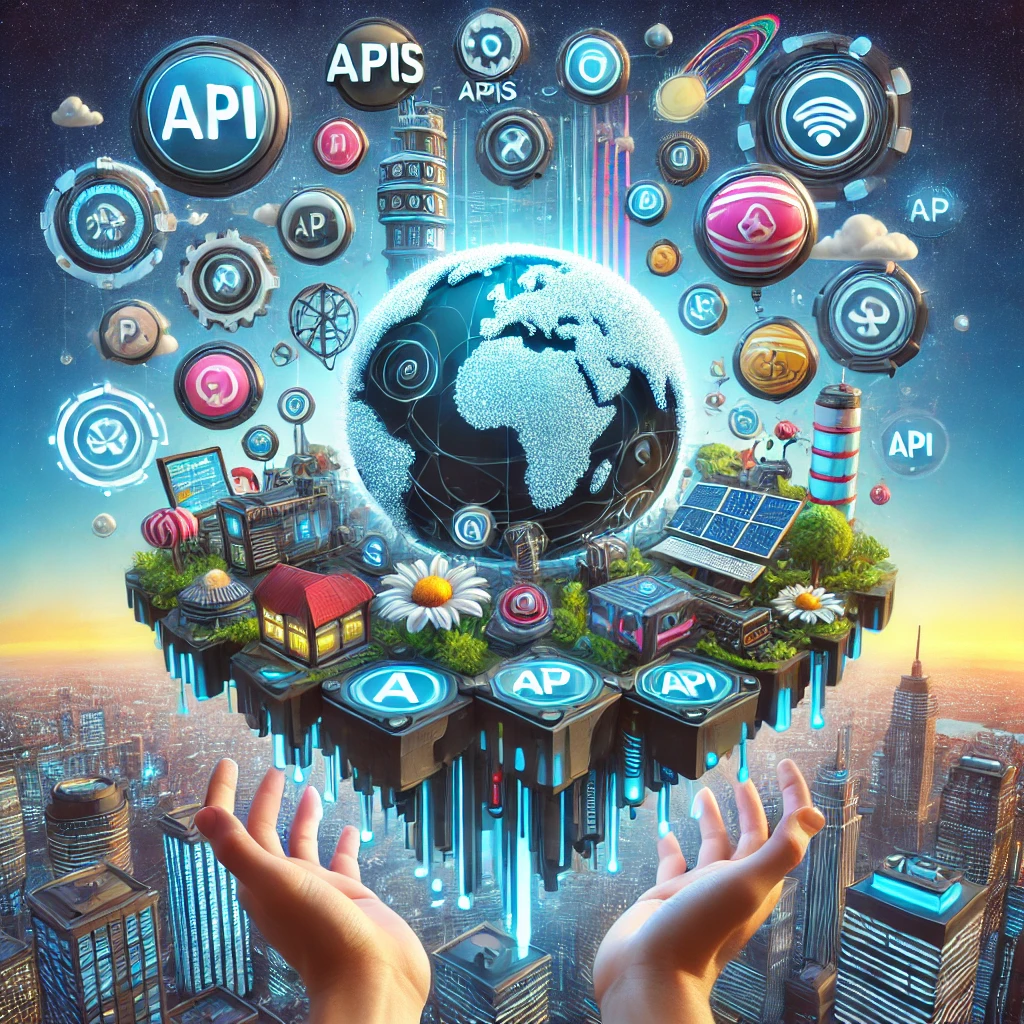APIs for Augmented Reality Applications: A Syncloop Perspective

This blog explores how Syncloop empowers developers to create powerful AR applications by simplifying API management and integration.
Role of APIs in Augmented Reality Applications
APIs are critical for enabling AR applications to access and process various data sources, including:
- Real-Time Sensor Data: Integrating inputs from cameras, GPS, and accelerometers.
- 3D Content Rendering: Delivering high-quality 3D models and animations.
- Data Interoperability: Connecting AR applications with external platforms for real-time data exchange.
- Object Recognition: Enabling machine learning models to identify and track objects.
- Cloud Processing: Leveraging cloud-based resources for computationally intensive tasks.
Challenges in AR API Development
- Real-Time Performance: Minimizing latency for seamless AR experiences.
- Data Processing: Handling large volumes of real-time sensor and object data.
- Scalability: Supporting a growing number of users and devices.
- Integration Complexity: Connecting AR applications with diverse systems and APIs.
- Security: Protecting sensitive user and environmental data.
How Syncloop Supports AR API Development
1. Real-Time Data Processing
Syncloop ensures real-time processing of AR data for smooth and responsive experiences.
- Features:
- WebSocket support for bi-directional communication.
- Event-driven architecture for real-time workflows.
- Benefits:
- Minimizes latency for high-speed AR interactions.
- Enhances responsiveness for real-time applications.
- Use Case: Streaming live data from sensors to overlay AR content on mobile devices.
2. Dynamic Scaling
Syncloop’s dynamic scaling capabilities ensure AR APIs handle high traffic efficiently.
- Features:
- Auto-scaling for peak usage periods.
- Load balancing to distribute workloads across servers.
- Benefits:
- Maintains performance during spikes in user activity.
- Reduces costs by scaling down during low traffic periods.
- Use Case: Scaling AR applications during live events or gaming tournaments.
3. Seamless 3D Content Delivery
Syncloop integrates with APIs for 3D content delivery and rendering.
- Features:
- Pre-built connectors for 3D model repositories and rendering engines.
- Support for diverse file formats like OBJ, FBX, and GLTF.
- Benefits:
- Simplifies access to high-quality 3D assets.
- Enhances visual fidelity in AR experiences.
- Use Case: Delivering 3D furniture models for an AR-based interior design app.
4. Integration with AI and Machine Learning
Syncloop facilitates seamless integration with AI and machine learning APIs for advanced AR capabilities.
- Features:
- Support for object detection, image recognition, and spatial mapping APIs.
- Orchestration tools for combining multiple AI services.
- Benefits:
- Enables intelligent AR features like gesture recognition and object tracking.
- Reduces development complexity for machine learning integrations.
- Use Case: Enabling facial recognition for AR-powered virtual try-on experiences.
5. Data Security
Syncloop enforces robust security measures to protect AR applications and user data.
- Features:
- End-to-end encryption for secure data transmission.
- Role-based access control (RBAC) for granular permissions.
- Benefits:
- Safeguards sensitive user information and location data.
- Ensures compliance with privacy regulations.
- Use Case: Securing user data in AR navigation apps for smart cities.
6. Real-Time Monitoring and Analytics
Syncloop provides real-time monitoring tools to track AR API performance and usage.
- Features:
- Dashboards for tracking latency, error rates, and traffic patterns.
- Alerts for performance bottlenecks or anomalies.
- Benefits:
- Proactively identifies and resolves issues.
- Enhances the reliability of AR applications.
- Use Case: Monitoring AR gaming APIs during live multiplayer sessions.
Benefits of Using Syncloop for AR Applications
1. Improved Performance
Ensures seamless real-time interactions with low latency.
2. Simplified Integration
Pre-built tools and connectors streamline integration with AR technologies.
3. Enhanced Scalability
Handles growing user bases and dynamic workloads effortlessly.
4. Robust Security
Protects sensitive data with encryption and role-based controls.
5. Real-Time Insights
Enables proactive management and optimization of AR APIs.
Real-World Applications of AR APIs with Syncloop
1. Retail and E-Commerce
- Use Case: Enabling virtual try-ons for clothing or accessories.
- Benefit: Enhances user engagement and boosts sales.
2. Healthcare
- Use Case: Supporting AR-guided surgeries with real-time overlays.
- Benefit: Improves precision and patient outcomes.
3. Education
- Use Case: Delivering immersive AR lessons for interactive learning.
- Benefit: Enhances student engagement and retention.
4. Construction and Real Estate
- Use Case: Visualizing architectural designs in real-world environments.
- Benefit: Streamlines project planning and client presentations.
5. Entertainment and Gaming
- Use Case: Enabling real-time multiplayer AR gaming experiences.
- Benefit: Provides immersive and interactive gameplay.
Best Practices for AR API Development with Syncloop
- Optimize for Real-Time Performance: Use WebSocket APIs and event-driven workflows for instant updates.
- Leverage Scalability: Configure auto-scaling to handle fluctuating user demands.
- Secure Data: Implement end-to-end encryption and access controls.
- Integrate AI Tools: Enhance AR capabilities with machine learning and object recognition APIs.
- Monitor Continuously: Track performance metrics to identify and resolve issues proactively.
The Future of AR with Syncloop
As AR technology continues to evolve, Syncloop is advancing its platform with:
- Edge Computing: Reducing latency by processing AR data closer to the source.
- AI-Driven Insights: Enabling predictive analytics for intelligent AR applications.
- 5G Integration: Supporting ultra-low latency for high-speed AR experiences.
These innovations will empower developers to create next-generation AR applications that redefine user experiences.
Conclusion
APIs are the backbone of augmented reality applications, enabling seamless integration of real-time data, 3D content, and intelligent features. Syncloop provides the tools and infrastructure to simplify AR API development, ensuring scalability, security, and performance.
By leveraging Syncloop, businesses can unlock the full potential of AR technology, delivering immersive and impactful experiences to their users.
An illustration showcasing Syncloop's role in AR application development, highlighting real-time processing, 3D content delivery, and scalability for immersive experiences.
Back to Blogs